| |
| |
| |
| Presented By the U.S. Air Force Rapid Sustainment Office (RSO) |
| |
| Axios World |
| By Dave Lawler ·Oct 19, 2020 |
| Welcome back to Axios World. Tonight's journey is 1,467 words (5 1/2 minutes). - We're starting with some reporting from my colleague Barak Ravid and some big news: Barak's newsletter, Axios from Tel Aviv, is launching on Wednesday. Sign up here.
- Barak is Israel's most plugged-in reporter, and I can assure you that his first edition will not disappoint.
New to World? Sign up. |
| |
| |
| 1 big thing: A big deal for Sudan |
| Secretary of State Mike Pompeo (L) meets with Sudanese Prime Minister Abdalla Hamdok in Khartoum. Photo: Handout via Getty Images President Trump announced today that he will be removing Sudan from the State Department's state sponsors of terrorism list after the Sudanese government agreed to pay $335 million in compensation for families of American victims of terrorism. The big picture: Trump's announcement is part of a wider agreement that is expected to include moves from Sudan toward normalizing relations with Israel, Barak reports. - More steps are expected to be announced later this week, Sudanese, Israeli and U.S. officials say.
- Sudan's designation in 1993 as a sponsor of terrorism — due to then-dictator Omar al Bashir's harboring of al-Qaeda — cut the country off from the global financial system.
- Bashir was toppled in a popular uprising last year, and the transitional government that replaced him has made removal from the list a top priority.
What's next: The Sudanese government will transfer the money to a designated account set up for the compensation fund in the next few hours, Sudanese sources say. - Once the money is transferred, Trump is expected to sign an executive order to remove Sudan from the state sponsors of terrorism list.
- Sudan is also expecting the U.S. to announce an aid package in coming days. It will include financial aid and wheat, medicine and oil shipments.
- The aid is desperately needed, as Sudan's economy was in dire straits even before the COVID-19 crisis.
The big picture: Trump's tweet comes after two months of talks between Sudanese leaders and officials from the White House and State Department. - The talks aimed at a deal with multiple components: the U.S. would remove Sudan from the terror sponsor list; the U.S. and UAE would provide Sudan with a big aid package; and Sudan would agree to normalize relations with Israel.
Behind the scenes: Sudan's transitional government has been split on the issue of normalization with Israel, which could lead to domestic blowback amid the country's fragile transition to democracy. - The top military official, Gen. Abdel Fattah al-Burhan, has supported the idea, but Prime Minister Abdalla Hamdok has been more resistant and demanded $3 billion in aid to Sudan in exchange for normalization with Israel.
- For weeks, Hamdok has opposed the U.S. proposal despite heavy pressure from the U.S. and UAE, as well as from Burhan.
- But Hamdok appeared to change his mind in the last few days, Sudanese sources say, after receiving assurances from the U.S. that Sudan would be removed from the terror list and receive an aid package first, and only then would be expected to announce steps forward on normalization.
What to watch: If and when those hurdles are cleared, Israeli sources say the normalization process could begin with a phone call between Trump, Burhan, Hamdok and Israeli Prime Minister Benjamin Netanyahu. Worth noting: Iran, North Korea and Syria remain on the terror sponsor list. |
    |
| |
| |
| 2. Election roundup: Socialists storm back in Bolivia |
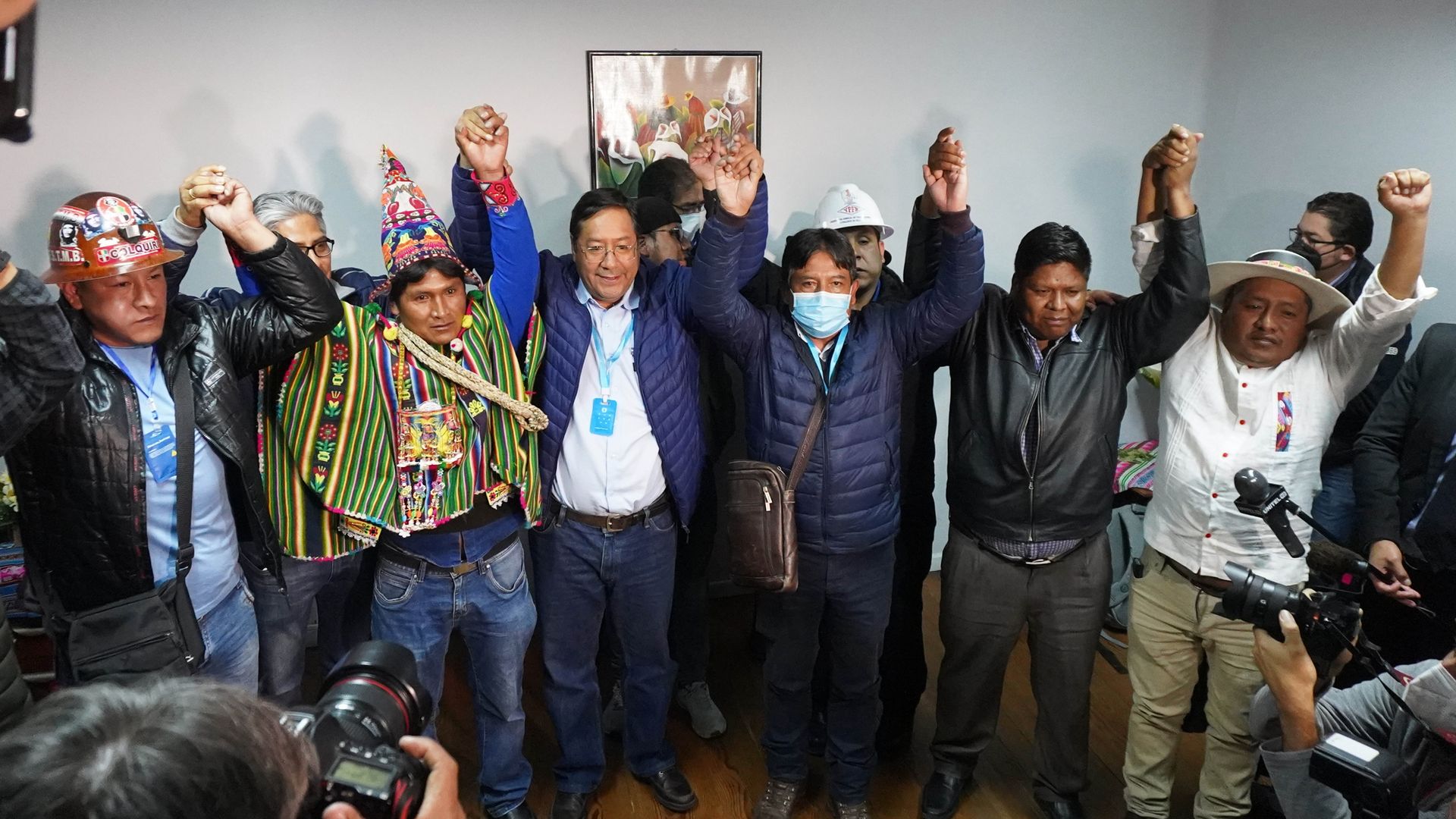 |
|
| Arce (center, with badge) celebrates on election night. Photo: Javier Mamani/Getty Images |
| |
| Leftist candidate Luis Arce won an "overwhelming and clear" victory in Bolivia's presidential election, his chief opponent said Monday in a concession speech. Why it matters: Looming over Sunday's vote were the events of one year ago, when then-President Evo Morales was ousted and fled into exile following a disputed election. Setting the scene: Arce had long led Bolivia's former centrist president, Carlos Mesa, in the polls but needed either an outright majority or a 10% margin of victory to avoid a runoff. - Some feared a contested outcome that could further imperil Bolivia's democracy, given the polarization and sporadic violence of the past year.
Flashback: The crisis began when official results in last year's election showed Morales barely clearing the 10% threshold to avoid a runoff, kicking off a chaotic period in which the Organization of American States said it found evidence of fraud, and Morales fled the country under pressure from the military — an outcome his supporters labeled a coup. - Right-wing senator Jeanine Añez was declared acting president under constitutionally questionable circumstances, and was accused of misusing her interim role to target the left and seek election herself (she dropped out in September after polls showed her in fourth place).
The state of play: This time, the fight was effectively over as soon as polls closed. - While the official results haven't been declared, two independent exit polls showed Arce winning a convincing first-round victory. Añez acknowledged Arce's victory on election night, and Mesa conceded the following day.
Between the lines: Arce is a far different figure from his charismatic former boss, who was seen by supporters as the founding father of a new Bolivia and by opponents as a would-be authoritarian. - Arce served as Morales' economy minister for 12 years, overseeing robust economic growth and earning a reputation as a pragmatic technocrat.
- Arce distanced himself from Morales at times during the campaign, and his allies have insisted he will govern as his own man and not as a stand-in for the former president.
|
    |
| |
| |
| 3. Election roundup: Waiting game in Guinea |
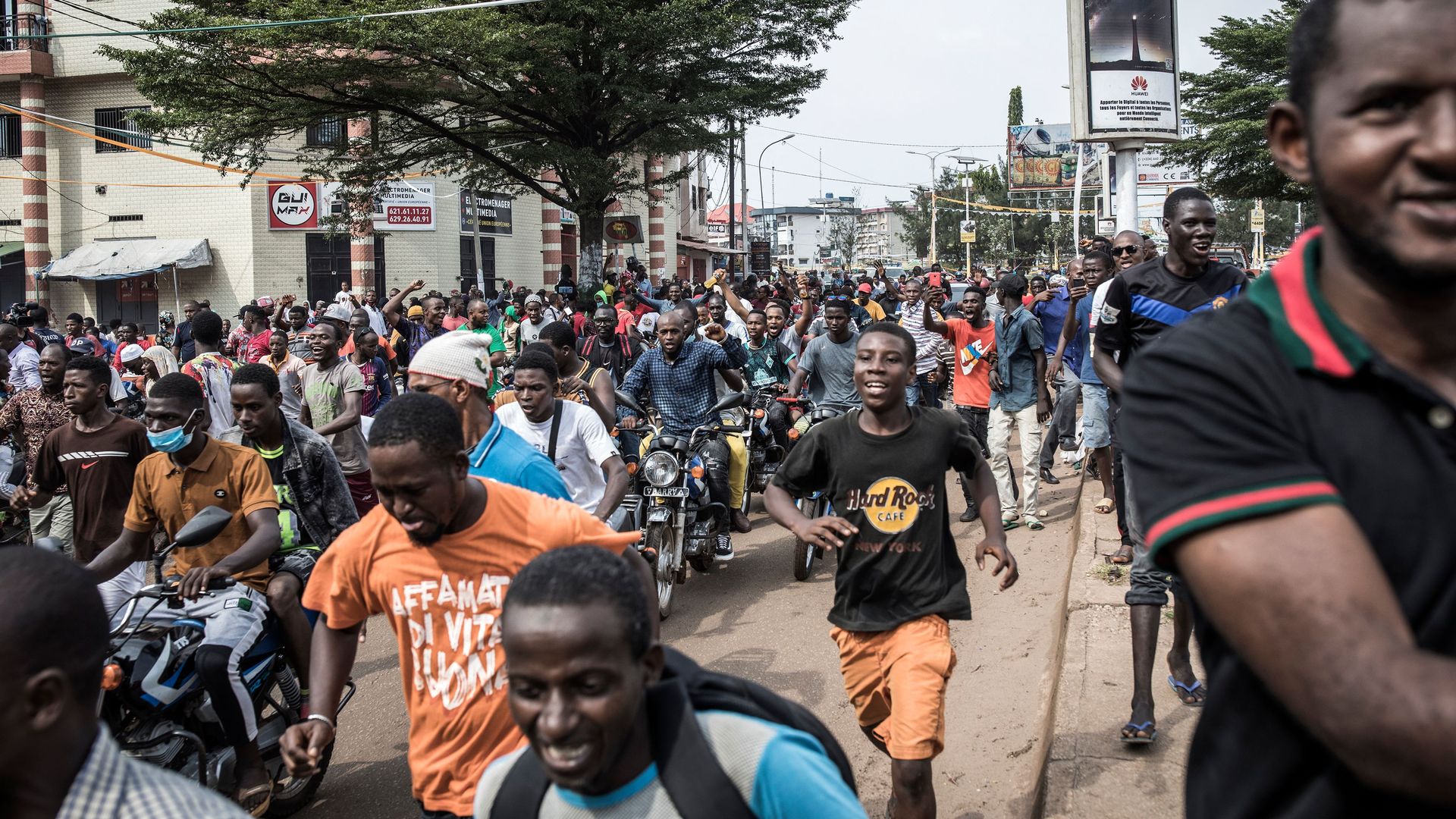 |
|
| Diallo's supporters celebrate his claim of victory in Conakry. Photo: John Wessels/AFP via Getty |
| |
| There was relative calm on election day yesterday in Guinea, though that could change quickly once the results are announced. Why it matters: President Alpha Condé, 82, tweaked the constitution to run for a third term. This is the third straight election in which he's squaring off against opposition leader Cellou Dalein Diallo. Driving the news: Diallo declared victory tonight, citing his party's count and calling on his supporters to "stay vigilant and committed to defend this democratic victory." - The national electoral body called that claim "premature" and "void." Guinea's prime minister accused him of putting "oil on the fire."
On the campaign trail, Diallo called on Condé to "retire with dignity." However, there's no history of presidential retirements in Guinea. - The impoverished but mineral-rich West African country of 12 million people has had four presidents.
- The first two, Ahmed Sékou Touré and Lansana Conté, ruled for a combined 50 years, dying in office in 1984 and 2008 respectively.
- The third, Moussa Dadis Camara, staged a coup following Conté's death, but left office a year later after being wounded in an assassination attempt.
- Then came Condé. A longtime opposition politician jailed under Conté, he was the first to take power via the ballot box (though his 2010 victory over Diallo was contested).
What to watch: Results are expected to take several days to tabulate. Condé and Diallo could face off in a run-off on Nov. 24 if neither gains 50% of the vote. Their bases break down largely on ethnic lines. |
    |
| |
| |
| A message from the U.S. Air Force Rapid Sustainment Office (RSO) |
| Manufacturing gets its own Olympics |
| |
 |
| |
| The U.S. Air Force will be hosting the inaugural Advanced Manufacturing Olympics from Oct. 20-23. The virtual event will bring together a community of industry, academia and government professionals to collaborate, network and discuss transforming sustainment in the Air Force. Register now. |
| |
| |
| 4. Election roundup: Labour landslide in New Zealand |
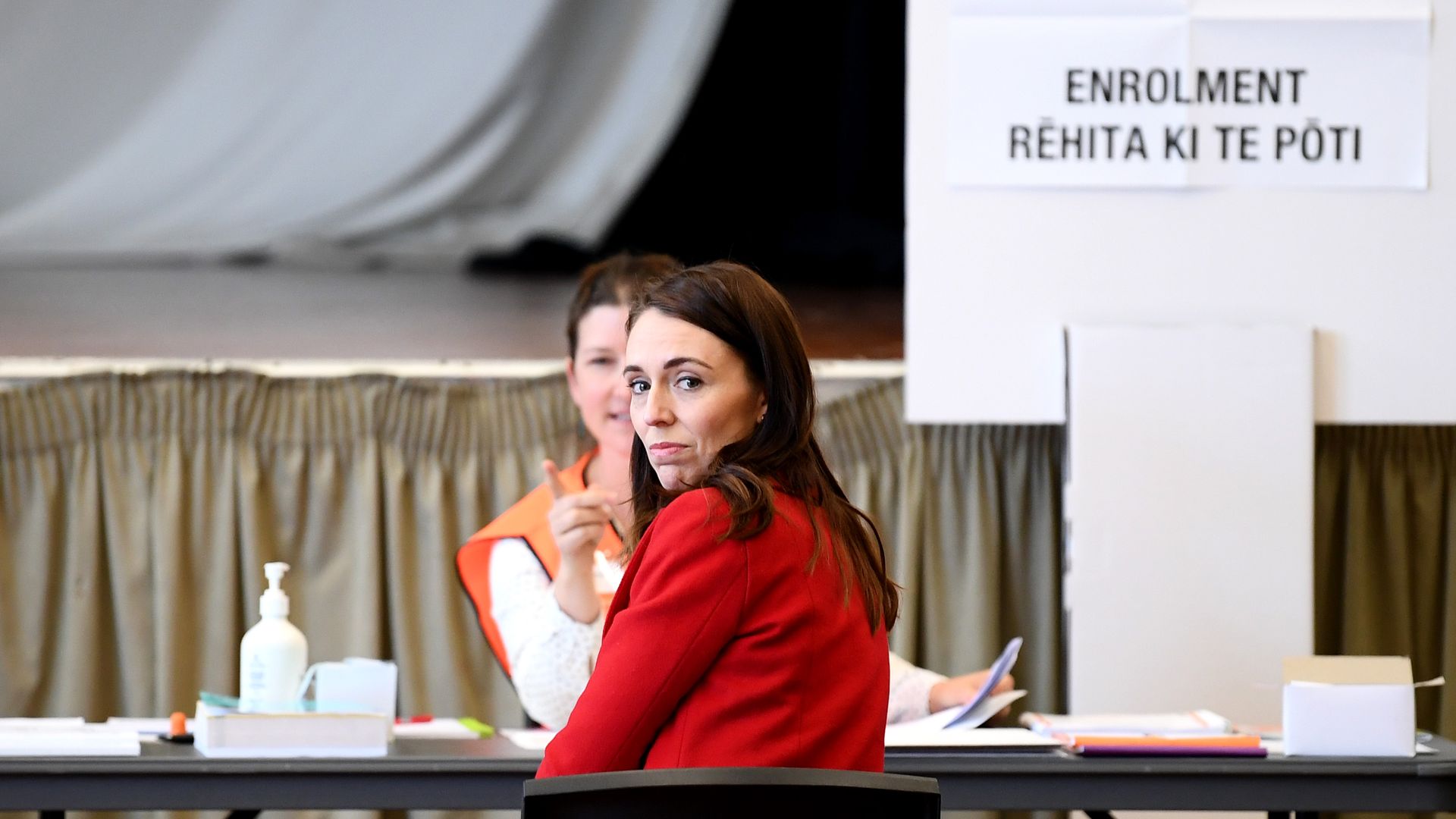 |
|
| One of many votes for Ardern. Photo: Hannah Peters/Getty Images |
| |
| New Zealand Prime Minister Jacinda Ardern won a landslide victory on Saturday, with her Labour Party taking an outright majority in parliament — a remarkable political achievement under New Zealand's proportional system. The big picture: Ardern has become something of a global progressive icon, but her campaign was focused on her handling of COVID-19 domestically. Flashback: New Zealand imposed one of the world's toughest lockdowns when the pandemic reached the country in March, Axios' Rebecca Falconer writes. - The island nation went 102 days with no detected cases in the community before COVID-19 re-emerged in Auckland in August.
- The country's most populous city went into a lockdown that was less severe than the first, while lesser restrictions returned to the rest of the country. There are now no restrictions on the population of 5 million people.
Go deeper. |
    |
| |
| |
| 5. Data du jour: World doesn't trust Trump |
 There's unlikely to be a period of global mourning if President Trump fails to win reelection two weeks from now. The big picture: In most of 32 countries surveyed by Pew, fewer than 30% of people have confidence in Trump to "do the right thing regarding world affairs." - Mexico (8%) and Germany (13%) are on the lower end, while confidence in Trump is highest in the Philippines (77%) and Israel (71%).
- Trump only fares better in two countries than Barack Obama did at the end of his tenure: Russia, where Trump is distrusted (20%) but Obama was even more so, and Israel. (Obama's rating in Germany was 86%.)
- However, Trump's ratings are actually considerably higher than George W. Bush's were by the end of his second term.
|
    |
| |
| |
| 6. One to watch: #EndSars, now what? |
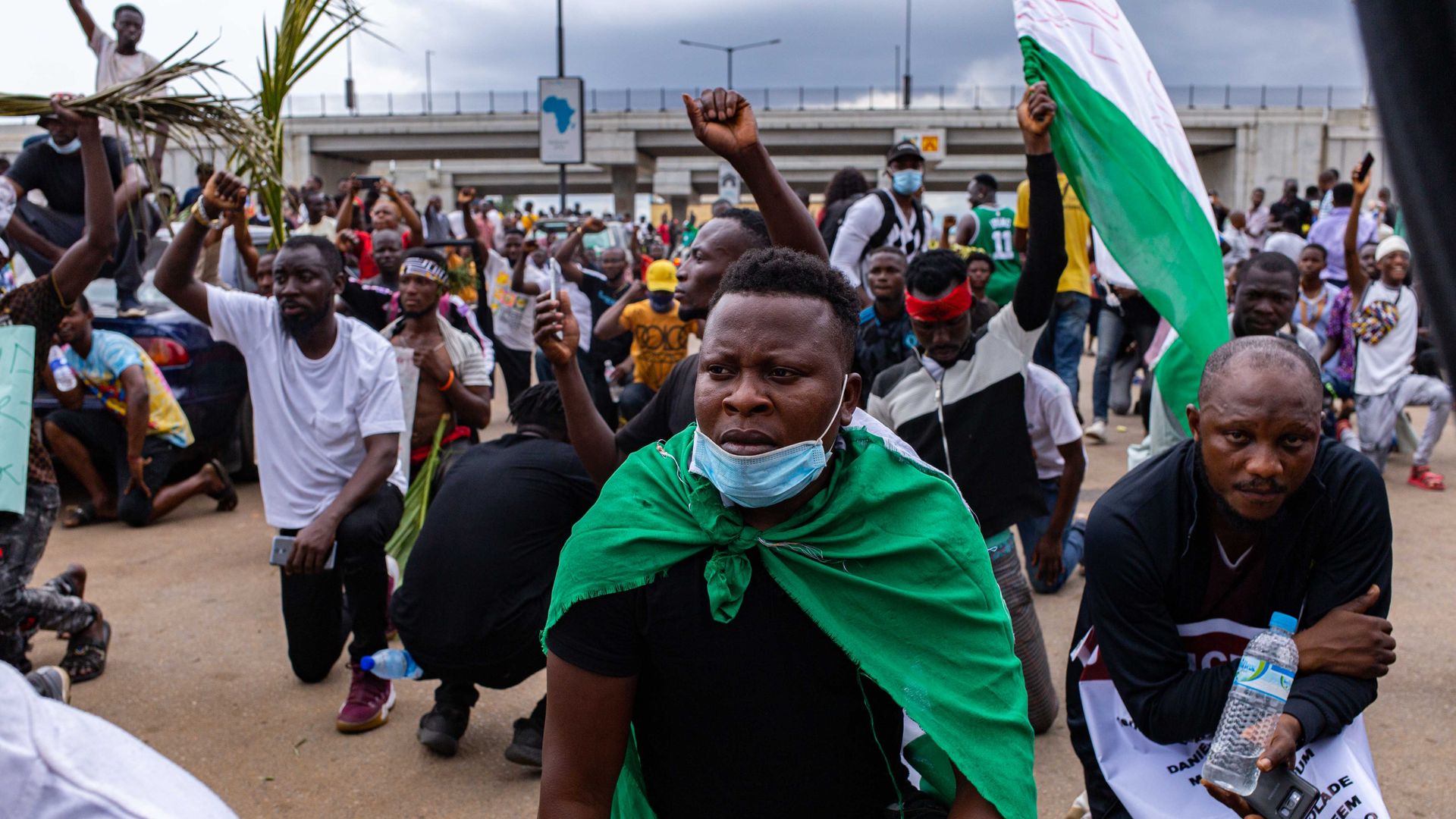 |
|
| Protests today in Lagos. Photo: Benson Ibeabuchi/AFP via Getty Images |
| |
| Protests calling for an infamous police unit to disband have escalated over the past two weeks into a broader youth-led movement that has shaken Nigeria's political establishment and been met at times with brutal force. The latest: - The government has agreed to dissolve the unit, known as Sars, but protesters worry it will simply be re-branded, and the abuses will continue.
- "There was an increased military presence in Abuja on Monday — a day after Defense Minister Bashir Magashi warned protesters against 'breaching national security,'" the BBC's Nduka Orjinmo reports.
Flashback: Olorunrinu Oduala helped organize an earlier protest outside police headquarters in Lagos. She explained on the Global Dispatches podcast: - A group of 43 protesters slept outside Lagos' police headquarters to show they would not be ignored.
- The following day they walked to the Statehouse and demanded to see the Speaker. Again, they settled in to sleep outside — but this time the police came in the night.
- Protesters posted live videos on social media as police forced them to disperse. Those then went viral and helped fuel the larger protest movement.
|
    |
| |
| |
| 7. Stories we're watching |
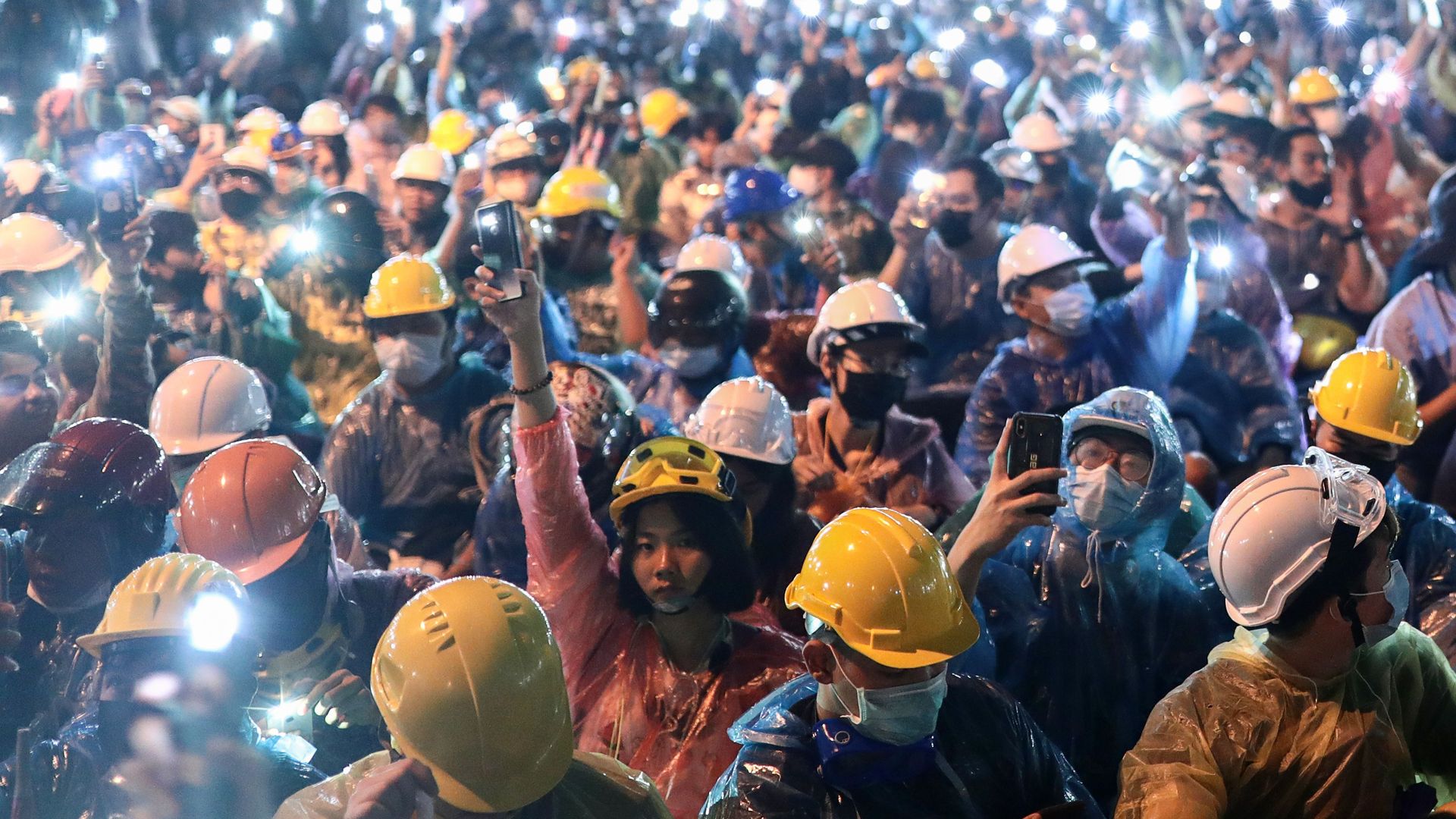 |
|
| Pro-democracy protests continue in Bangkok. Photo: Jack Taylor/AFP via Getty |
| |
- U.S. charges Russian spies with hacking
- China threatens to detain U.S. citizens
- UN arms embargo on Iran expires
- U.K. prepares for no-deal Brexit (again)
- Macron calls for unity after beheading of teacher
- Another fraying truce in Nagorno-Karabakh
- In photos: Coronavirus clampdown across Europe
Quoted: "President Putin's response today to extend New START without freezing nuclear warheads is a non-starter." — National Security Adviser Robert O'Brien effectively confirming that Trump's hopes of a pre-election nuclear deal with Russia have been dashed. |
    |
| |
| |
| A message from the U.S. Air Force Rapid Sustainment Office (RSO) |
| U.S. Air Force holds event to identify emerging technologies |
| |
 |
| |
| The U.S. Air Force's Advanced Manufacturing Olympics is aimed at translating innovative ideas into enduring solutions for the defense industry. At the free virtual event, you'll find: - Keynote sessions.
- Networking opportunities.
- Live technical competitions.
And more. Register now. |
| |



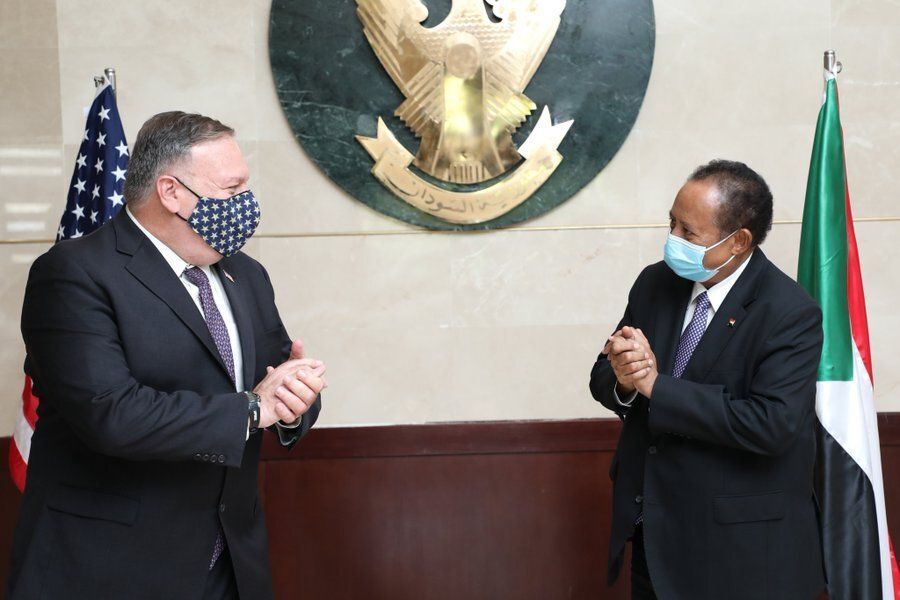






No comments:
Post a Comment